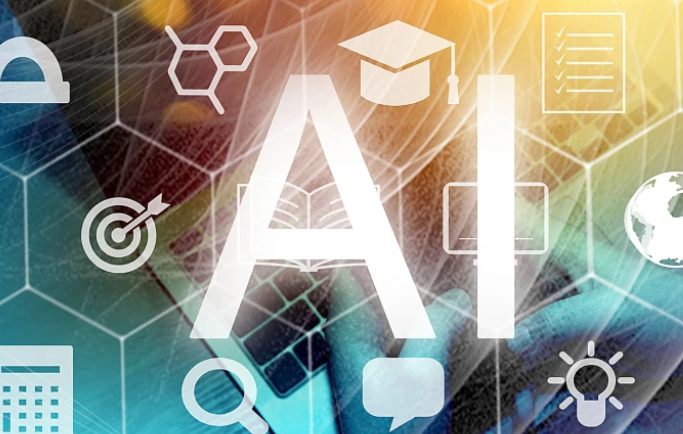University Launches Master’s Degree for AI in Education
At a time when an increasing number of school districts are experimenting with AI and seeking guidance on how to use it responsibly, one university system is aiming to prepare leaders capable of pioneering that work.
The University of Pennsylvania Graduate School of Education has announced its first education-focused degree in artificial intelligence. While other universities have offered degrees focused on AI development, Penn’s program appears to be distinct because of its education-specific focus.
Titled “Learning Analytics and Artificial Intelligence,” the master of science degree in education will focus on training data scientists, educators, administrators, and technologists in AI within the context of education, with a focus that spans from K-12 to higher education, as well as corporate learning and non-traditional learners.
Other postsecondary institutions, such as the University of Texas at Austin, Purdue University, and Johns Hopkins University, offer master’s programs in artificial intelligence, though their focus appears to be on engineering or computer science, rather than for education, specifically.
“The opportunities are immense for educational technologies to better support learners by using AI … to customize content to individual learners better or providing fast and deep feedback,” said Ryan Baker, professor of learning sciences and technologies at Penn’s Graduate School of Education.
“There’s potential all through the educational spectrum for this to provide new opportunities for teaching.”
The program was adapted from the school’s existing learning analytics master’s program, which was focused on data, but had strong elements of artificial intelligence. The new degree takes it one step further and highlights AI in every class, Baker said.
Coursework will be fully online with asynchronous and synchronous activities. It will cover topics such as machine learning, data analytics, the social contexts of data, technologies that adapt to student needs, and the ethical implications of AI in education, according to a statement released by the university.
The first cohort of students will begin the program in fall 2025. While the recommended timeline for the degree is 16 months, university officials say they have built in flexible scheduling to accommodate working professionals and students from around the world.
To date, there haven’t been adequate options for students who want to dive deeper into AI’s benefits and risks, and to develop competencies in those areas specifically for education, Baker said.
Some companies have found hiring for AI roles within education difficult, as many job seekers do not have the experience necessary to fill these positions.
We have to build the pool of people who understand AI but also understand its applications in education, which is exactly the gap that our program is trying to fill.
“We have to build the pool of people who understand AI but also understand its applications in education, which is exactly the gap that our program is trying to fill,” he added.
Many education companies are already investing in weaving AI into their existing products and trying to use the technology to improve their internal functions.
A survey conducted of K-12 business officials in EdWeek Market Brief’s recently released State of the K-12 Industry report found that more than 7 in 10 school-focused companies are using AI in one way or another.
When it comes to integrating AI into products, the most common uses are for formative assessment, English/language arts curriculum, and online professional development, the survey found.
In addition, the use of AI in some other areas, including those for special-needs populations and English learners, has jumped since last year, the survey found.
The University of Pennsylvania’s new program has developed curriculum for the first two years. But as AI technology rapidly evolves, the degree’s coursework will continue to adapt to reflect that as well, Baker said.
“Generative AI has been out for less than two years, and it’s moving really fast,” Baker said. “There’s so much demand in the industry and hiring in this area — and they’re trying to find folks to do this.”
Source: https://marketbrief.edweek.org/education-market/university-launches-masters-degree-for-ai-in-education/2024/11?utm_source=enl&utm_medium=eml&utm_campaign=EdBiz&M=11838566&UUID=2a7c4d33a99795e1f85d5443b5fb7112&T=15556946




